Trusted Criminal Defense Attorney Serving Greenville Clients Accused of Forgery
 It is illegal in South Carolina and throughout the United States to knowingly forge, falsify, or counterfeit financial documents or articles for personal financial gain by unlawfully seizing assets that belong to someone else. This is the case whether these assets belong to an individual, nonprofit, business, etc. Attorney Richard Warder has defended countless clients who were facing fraud charges over his four decades as a criminal defense lawyer and can help you as well.
It is illegal in South Carolina and throughout the United States to knowingly forge, falsify, or counterfeit financial documents or articles for personal financial gain by unlawfully seizing assets that belong to someone else. This is the case whether these assets belong to an individual, nonprofit, business, etc. Attorney Richard Warder has defended countless clients who were facing fraud charges over his four decades as a criminal defense lawyer and can help you as well.
Examples of Forgery
By no means a complete list, below are just a few of the common forgery cases we’ve taken on for our clients:
- Signing another person’s name on a check
- Creating a fake deed or real estate document
- Creating a fake diploma or other certification to obtain employment for which you are not qualified or permitted to perform
- Cashing a forged check or altering the dollar amount on a valid check
Forgery Penalties
If caught, a forgery charge can result in a misdemeanor or felony, depending on the monetary value of the crime. Acts of forgery valued at more than $10,000 are classified as felonies, whereas forgeries of smaller amounts may result in misdemeanors.
Felonious forgery is punishable by up to ten years in prison, fines, or both. Forgeries valuing less than $10,000 are punishable by five to ten years in prison, whereas forgeries with unknown dollar amounts result in misdemeanors and up to three years in jail. Academic forgeries of transcripts or diplomas are punishable with misdemeanor charges and one year in jail.
